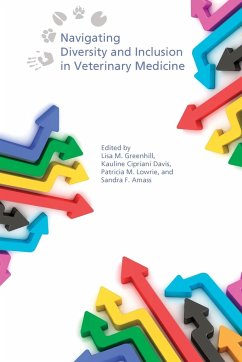This book addresses the continued lack of the diversity in veterinary medicine, the least inclusive of all medical professions. Effective navigation of the complexity of diversity and inclusion in veterinary medicine requires clear enumeration, recognition, and understanding of key issues, challenges, and opportunities. In a nation with rapidly changing demographics, public needs and expectations of the veterinary profession will continue to evolve. A more diverse scientific workforce is required to feed the veterinary profession, not just for the purposed of equity, but as necessity for its sustainability and relevance.The book lays out the history of diversity in the veterinary profession, in the context of historical changes and actions within US society. An overview of selected strategies from dental, pharmacy, and (human) medical schools is then offered. The impact of social constructs on career interest development is explored using the examples of race, gender, sexual orientation, and gender identity. Practical strategies for attracting preschool through undergraduate students to careers in the veterinary profession are presented, as well as metrics and tools to assess the impact of diversity and inclusiveness strategies. A systems approach to diversity and inclusiveness in the veterinary profession is called for in a manner that frames barriers as opportunities for improvement and progress. There is much that needs to happen to achieve professional inclusiveness and cultural competency, but the path to achieving this is clear. System-wide commitment, planning, execution, and continuous assessment will position the profession to better suit the population of the nation and the world that will be served. This is book is a call to action for consistent championship and cohesive approaches, and it provides a road map to building a sustainably inclusive future.
Hinweis: Dieser Artikel kann nur an eine deutsche Lieferadresse ausgeliefert werden.
Hinweis: Dieser Artikel kann nur an eine deutsche Lieferadresse ausgeliefert werden.








